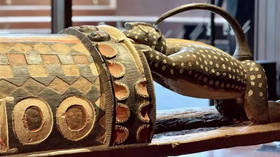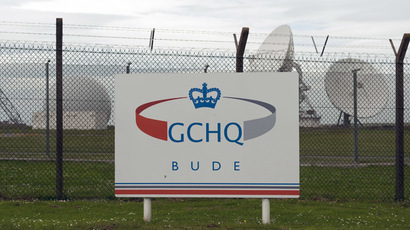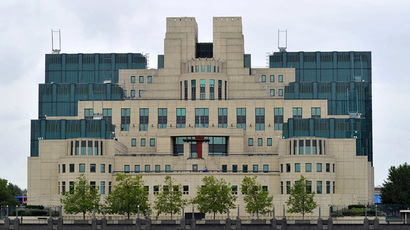UK anti-terror law allows border cops to seize phone data with no justification
UK border police can seize mobile phone data from anyone entering Britain without any justification. Under an anti-terror law, authorities can examine personal information and retain it for as long as they deem necessary.
Independent British judge, David Anderson QC, published the
information in a blog post and will present his concerns over the
sweeping powers in a report to parliament on Wednesday.
The powers in question are outlined in Schedule 7 of the
Terrorism Act 2000, which empowers police “to stop, examine
and search passengers at ports, airports and international rail
terminals, compel them to answer questions aimed at determining
whether they are terrorists.”
The law also allows cops to detain citizens for up to nine hours
and keep their possessions for up to a week. Moreover, data
collected from mobile phones and other gadgets can be downloaded
and stored for examination for an unspecified length of time.
“Ordinary travellers need to know that their private
information will not be taken without good reason, or retained by
the police for any longer than is necessary,” said Anderson
to the UK’s Daily Telegraph.
He writes in his blog that around half a million people each year
are stopped “either on the basis of intelligence or in
accordance with guidance contained in a code of practice.”
However, about 60,000 of those detained are held for over 15
minutes and some for more than three hours.
Anderson notes that authorities may exercise this right without
having to justify their suspicions. Furthermore, there is no
wording in the legislation to account for how long any digital
information downloaded from a mobile device may be stored.
“Just to say we are going to glean information from anybody and hold it for as long as the police deem necessary really isn’t acceptable,” Dia Chakravarty of the Freedom Association told RT’s Tesa Arcilla. She emphasized that questions need to be asked to ensure the fine line between protecting state security and violating personal privacies is not crossed.
Similar stop-and-search powers that can be exercised by police
officers on the street are currently under review in a six-week
consultation by the Home Secretary. It follows a damning report
from Her Majesty’s Inspectorate of Constabulary (HMIC), which
stresses that out of the one million people stopped every year,
only 9 per cent are actually arrested.
“Conducting stop and search encounters without reasonable grounds
will cause dissatisfaction and upset, and whilst some may think
it will help to ‘control the streets’ in the short-term, it may
lead to major disorder in the long-term,” wrote the HMIC.
Of particular concern to QC Anderson is how the law is exercised
in minority ethnic communities in Britain, as “fewer than half of
those selected for examination in each of the past three years
have been white.” Moreover, more than a quarter of those searched
under the law have defined themselves as Asian or British
American.














